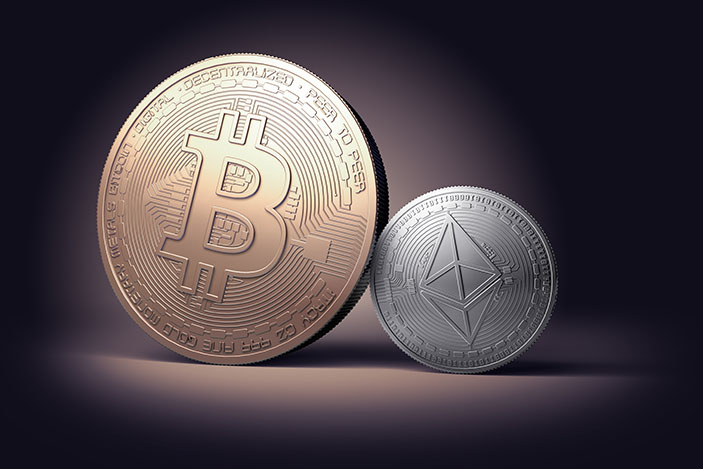MONEY typically has three main functions:
A medium of exchange;
A store of value; and
Unit of account.
How do these work together?
Say you go to your local grocery shop to buy a bottle of cooking oil. You pay cash to the grocer and take the bottle of cooking oil home. Your money worked as a medium of exchange.
Now, when you run out of cooking oil again some time later, you go back to the grocery shop with enough money to buy another bottle. The amount you paid the last time you were there acts as a unit of account. It enables both you and grocer to decide on the price of the bottle of oil almost instantly.
In the meantime, the money you took there in your pocket also acts as a store of value because it holds its value over time. Even If the price of a bottle went up by 10 cents over the interim period, you still pay the amount you paid the last time, plus the additional 10 cents.
Thus, money is a facilitator of the exchange of the bottle of cooking oil between you and the grocer. There is clarity in the exchange and both parties are happy.

Money For Something
The use of money in exchange for goods and services works very well. It keeps real economies going.
However, since the United States unilaterally removed the gold standard in the early 1970s under the Nixon administration, the role of money in society has expanded. Fiat currencies, or currencies that governments have declared as legal tender based on trust without any asset backing, have dominated the financial system.
It led to the value of money being dictated by the dynamics of supply and demand.
This development opened a gaping hole for speculation in currencies, which has been accentuated to the nth degree by the global interconnectivity accorded by technological advancements. Speculation now totally dominates currency trading around the world and the amounts are unfathomable.
Last September, the Bank for International Settlements (BIS), the central bank for central banks, reported in its 2016 Triennial Central Bank Survey that trading in FX markets averaged about US$5.1 trillion per day in April 2016.
While this was lower compared to US$5.3 trillion in its previous survey in 2013, it is still a staggering amount. The bulk of this number is estimated to be speculation, though BIS never mentions this in its Triennial surveys.
You might also want to read:
ETFs — Bucking The Trend For Want Of A Quick Buck
Ransomware — The Line Between Crime And Terror
No one knows how much of this huge daily trading amount goes into the actual economy that manufactures things or facilitates the exchange of goods and non-financial services. It makes you wonder what banks have foreign exchange strategists for. Actually, the answer is self-evident.
Strategists add a veneer of respectability to banks’ speculative activity in the market.
Their analyses of foreign exchange reserves, balance of payments and so on impresses people, and lulls them into thinking that this is how it should be.
Volatility in foreign exchange helps no one except traders who benefit from such movements due to their speculative trading. They are basically gambling with stakes that are unimaginable to the lay person.
Say, a trader makes just one basis point on an instantaneous $1 billion trade. This translates to a profit of $100,000 less any transaction cost. Did the trader add any value to the real economy with this trade? The answer is no. But the trade did line his employer’s pockets.

Bucking The System Of The Buck
Against this backdrop, people who look to introduce alternative currencies believe that there is something wrong with the current system, or they have lost faith in it.
The latest genre of alternative currencies are cryptocurrencies like Bitcoin and Ethereum. While understanding the mechanics of how they work should come with a health warning from the Surgeon-General, cryptocurrencies adhere to the three main functions of money, namely a medium of exchange, a store of value and a unit of account.
Whether their use becomes as widespread as that of smartphones since the start of the new millennium will depend on at least two factors.
As cryptocurrencies take out intermediaries like central banks and banks from the equation, we will see banks and central banks constantly trying to inject themselves into the process. This is already happening and new legislation governing the use of cryptocurrencies will emerge if they get more popular.
Speculation in cryptocurrencies will create a similar situation to what we have seen in the last few decades with fiat currencies. It will be more of the same, arguably defeating the very purpose of setting up cryptocurrencies, namely to facilitate trade in the real economy. If cryptocurrencies are corrupted by speculation, people will again look for new alternative currencies.
It’s a vicious cycle that ensures the current currencies ride the currents.
Next Week: Should You Get Into Cryptocurrencies?
Thus It Was Unboxed by One-Five-Four Analytics presents alternative angles to current events. Reach us at 154analytics@gmail.com
Main Image: 3Dsculptor / Shutterstock.com






















A very well written artice explaining a subject on what I had a fleeting understanding off. Thank you.